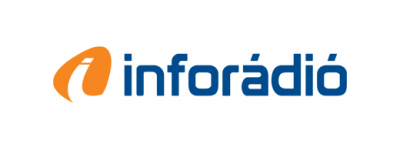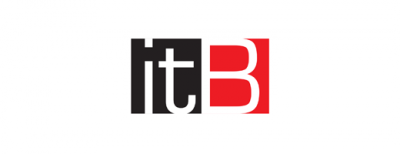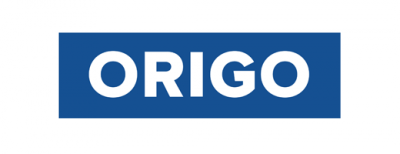Agenda
English-language lectures
All lectures are translated into english. The English-language lectures signed in the program.
 For the fifth time in 2016, Hungary’s market leading infocommunications company, T-Systems Hungary will hold its full-day professional conference, the Symposium on 30 November 2016. The internationally renowned event expects to host 2000 attendees. It is a great honour for me to be the hostess and moderator of the conference this year.
For the fifth time in 2016, Hungary’s market leading infocommunications company, T-Systems Hungary will hold its full-day professional conference, the Symposium on 30 November 2016. The internationally renowned event expects to host 2000 attendees. It is a great honour for me to be the hostess and moderator of the conference this year. The motto of the conference in 2016 is “Through technology for a sustainable future”. Related to the motto, the invited speakers will tell us how technical inventions can be used in the various fields of life, in a sustainable manner. In the Future Space we will showcase the unique portfolio of T-Systems via specific solutions and services.
You can read the detailed programme below. Looking forward to meeting you at the conference!
The cooperation of the infocommunication-defining robust drivers, social solutions, mobility, analytics, cloud services as well as networks (IoT) covering and “seeing” every aspect of our life have resulted dramatic developments in many areas of the business and significantly changed our lives. Magyar Telekom and T-Systems Hungary are active players and drivers of the digital society. Besides the spectacular solutions, this world has a component that is not visible, though. Not visible but very much perceivable. The question is, what expectations the digital Hungary of the future will have of communication, and what Magyar Telekom will do to ensure these expectations are met.
In elite sports creativity has no limits and in the sports industry, innovation is constant. Weather it is to improve the performance of the athletes themselves or the fan experience. Advances in technology have had a profound impact on sport including:
- analysis of sport performance and enabling coaches to greatly improve the quality of feedback to players/athletes
- increase accuracy in time measurements of sport performance
- enabling referees and sport officials to make better decisions on rule infringements
- improvements in design of equipments for best performance
- building a better team with less but concentrated resources
- providing spectators with better view of sport for better marketing results
The Euro 2016 has proved it all of us that even small teams can have a chance when technology, innovation and creativity is incorporated into preparation process.
We all have experienced how the ever increasing digitalisation and state-of-the-art technology permeate and ultimately change our lives. The real question now is how we can use these achievements in a smart way, and how businesses and their clients as well as the communities, cities, regions and countries can benefit from these opportunities in the long run, gaining better focus, higher efficiency and more rational operation along the way. T-Systems Hungary strives to dream up the future based on the current innovative technology. Real good results, however, may only be achieved through joint thinking and cooperation. In other words, we come up with the transformation process jointly with our customers, and also take the road to success together with them.
Artificial intelligence has been in development for over 60 years, but it has recently undergone a renaissance of capabilities, funding, attention, and successful projects. This talk focuses on the drivers of that success: technical, financial, data, application, and social. It explores how we will augment human intelligence with artificial intelligence, the impact on jobs, and what we will need to do to manage the technology responsibly.
Citizens want security and well-being, entreprises aim for predictable and profitable activities and politicians aspire to promote public welfare and the success of citizens - the main objective of the Digital Succes Program (DSP) is that these aspirations succeed parallelly and strengthen each other.
DSP's starting point therefore is that the above objectives can be realised all at the same time and all those concerned can become effective actors of the digital ecosystem not at each other's expense but in a mutually encouraging way.
If we achieve this, then in a couple of years the followings could happen.
Thanks to the Digital Education Strategy elaborated in the framework of the DSP, experts equipped with the most up-to-date knowledge will, on the one hand, satisfy the employment needs of ICT companies, and, on the other, will create demand for the ICT sector as consumers and users of digital goods via their high salaries which match their expert knowledge.
Owing to the measures of the Digital Export Development Strategy, the ICT sector and the actors of the widely interpreted actors of the digital economy will achieve international success expanding continually their product and service export.
The start-up ecosystem will thrive once members of the start-up community take advantage of tax cuts and other forms of support made available by the Digital Start-up Strategy.
In accordance with the objectives of DSP, Internet will become readily accessible and affordable to all after superfast Internet will have reached all households by 2018; the VAT of Internet has fallen from 27% to 18% as of 2017; a basic Internet package has become available to those in need; free WiFi service has been introduced in all settlements; large-scale, nation-wide programes have commenced in order to develop digital competencies.
In the world of ever-changing IT trends we may not realise how much a three-letter term can define our life. We have to find those elements that can be to our benefit as an individual or as a business leader. IoT is such a term today. The presentation will reveal how an IoT solution can support our life.
During this year’s Symposium, T-Systems Hungary will present awards in altogether in three categories to its partners that have created higher than usual values in the course of their cooperation with our company. In addition to the partners who have made the highest contribution to our becoming a partner in transformation, the most loyal small and medium-sized collaborators and the companies that have achieved the most rapid increase will be handed over awards by T-Systems Hungary.
The Hippocratic Oath has laid down the ever since unchanged foundations of medical sciences. Doctors would need to spend 29 hours per day on reading to stay up-to-date with the recent research developments - which is naturally impossible. In the next phase of development we may expect revolutionary changes and thanks to the rapid development of technology within 5 years we may witness the re-interpretation of the ancient Greek wisdom.
Director of the CEU Business School Technology Management and Innovation Program Head of IBM Magyarország Technological Services Business Unit, IBM Hungary
In his absence, Balázs Fürjes, Chairman of the Budapest 2024 bid, greets the guests in a short video message. The underlying thought of his speech is that sports – similarly to technology – connects people living far from each other. Balázs Fürjes also speaks about how the evolution of technology fits into the concept of the Olympic Games, and how innovation and sports can strengthen one another. Why will the Budapest Olympics be the games of the future, youth, sustainable development and inspiration? – the brief speech of the Chairman of the Budapest 2024 bid will answer all these questions.
Google's mission is to systematize the information of our world and to make it accessible and useful for everyone. Through Google's presentation we will have an insight on the company's future vision on innovation and artificial intelligence.
Multinational corporations must learn to reach beyond their own complexity and in consideration of their existing processes they are required to establish an optimal, forward-looking and innovative environment where they can build their future. During this presentation we will show how T-Systems responds to the challenges of innovation management. We will also elaborate the issues and hardships of deviating from the innovation standards. We will present how T-Systems responds to challenges and in what kind of partnership cooperation the company wishes to implement an effective innovation management system.
The presentation will give an insight in the methodology we use to direct our team of 600 developers towards innovative thinking and operation. Practical tricks and tips to make your Team even more innovative and creative.
Head of Department, Technical Development Department, HungaroControl Magyar Légiforgalmi Szolgálat Zrt.
Chairman of the Telecommunication and Information Technology Branch, Magyar Mérnöki Kamara
Károly Ott
MOL GROUP BI, Big Data Expert, MOL
As a consequence of the digital transformation taking place also in public administration, new opportunities open for various state organizations and agencies to manage their risks and prevent the payment of unauthorized/faulty applications more efficiently, using analyses and decision support applications built in processes. The presentation will show through concrete examples and case studies, how the SAS solution will assist a number of public administration institutions in utilizing the dramatically increasing data volume in accordance with this purpose. The introduced concept and the solution supporting it is suitable for the management of risks related to taxation, allowance payments and disbursements, disbursement of EU funds and procurements.
Today it is an expectation that not only static and informative materials are available on the Internet, but also an increasing number of thematic areas – formerly accessible in desktop environments only – should be searchable. One of these thematic areas is that of technical and asset inventories, one of the first domestic nation-wide representative of which is Vikka, the National Authentic Water Public Utility Cadastre!
What challenges do corporate data warehouses face in the era of information boom? How the Self-Service BI may support the resolution of these problems? This practical presentation will address these topics and practical experiences regarding the introduction.
- The change of financial consumer habits and expectations
- we will see the roles of digital technologies
- GFK insight on the main trends of digitalization of money in the coming five years
Roundtable discussion
Moderator: Gábor Lemák and Gabriella Csanak
Topics: Regulatory environment and expected changes towards FinTech Banks - cooperation
Discussion partners:
Hungarian National Bank:
- Lajos Bartha, Director
Retail Bank Directors:
- Ralf Cymanek Managing Director/ Raiffeisen
- Márk Hetényi Managing Director / MKB
- Tamás Schenk Digital Transformation Managing Director / OTP
Cisco Hungary
- Krisztina Horváth Managing Director
FinTech representatives:
- Barnabás Debreczeni /Shinrai
- Tamás Vizi /VirPay
- Márton Szabó/KOIN
T-Systems has been working with banks for a long time and is well aware of their imminent problems. At the same time, as the member of Telekom group, the company has the opportunity to experiment with various technological inventions and manage new projects. As a result T-Systems has an answer to the biggest challenge of Hungarian banks - the digital customer service. Our company has proven competences in areas like video chat, voice biometrics based communication solutions, Location Based Marketing, Gamification or the use of Big Data resources for campaign purposes. The presentation will show a mobile banking application that features several of the above competences while offers outstanding customer experience to the customers of banks.
Digital channels are more and more extensively used in the banking sector. The number of transactions increased significantly in the past five years and the question arises how increasingly complex processes can be implemented in the digital banking space. Which path did those international banks choose where they successfully transferred customer services - not only transaction management - from expensive channels to the digital world? How can Hungarian banks increase the number of transaction types that can be performed in digital banks in a way that customers quickly get used to them? What are the best practices? What challenges totally digital banks pose for traditional banks in the customer segment which is absolutely comfortable in the digital space? Why traditional banks invest into virtual banking assistants? Just because it is fancy, or because it is effective? The presentation will show international examples on how innovative technologies help to answer current and future challenges of digital banks.
After getting acquainted with IFRS9, financial institutions are already facing the challenge of compliance with the new standard until 2018. The presenter will give an insight into the challenges of parameter estimations necessary for the calculation of depreciation as well as its potential impact and consequences.
Senior business consultant - Info-communication solutions - Business solutions competence center, T-Systems Hungary
In the world of BigData the data will definitely have a value based on which one can build businesses. The presentation will point out those business models that may have an impact on the retail industry but it will also discuss the potential future services of Telekom on the basis of such data.
By way of introducing two concrete products and services (MotionLogic and Managed WiFi) we will explore what information can be retrieved from the analysis of indoor and outdoor heatmaps on customers and their habits. With the help of the accumulated information and their analysis we may find out how to improve the operation of retail units and how sales can be made more effective.
The presentation will focus on the new version of the Smart Campaign service. The service is built on contacting customers based on their location and with the help of this, besides acquiring new customers, existing customers can be effectively approached near the sales points.
Brief introduction of HPE’s retail competences, and introduction of a concrete service, the Aruba, also presented in the Jövőtér (Future Space) stand, including its retail usability along case studies.
The world of science fiction helps us to push our limits. However, science-fiction has become reality in industries outside and also within healthcare, too. This statement is supported by the existence of drones delivering healthcare equipment, 3D printing, customized medications, extended and virtual reality in education and sensors that can be used in our homes. These days almost every parameter of our lives can be measured, even the information in our genes. Our new challenge will be whether we can maintain the significance and importance of human touch in our everyday lives amidst the rapid development of technology.
In healthcare “value” means the health of the patient thus the value creation process is the healing of the patient. The information in respect of the healthcare status of the patient is of key importance in the healing process and the maintenance of health. Info−communication companies can support healthcare processes with making the information available, visualizing the information, connecting the information from various sources as well as the effective imaging of all these relations. The objective of the Electronic Healthcare Services Space (EHCS) is to connect various healthcare institutes of Hungary and, in order to ensure the proper treatment of patients, to make the information generated in other peer institutes available in a structured and standardized way, in accordance with the effective laws and based on the latest technologies. Thanks to this initiative the EHCS is a new dimension in the healthcare IT information flow.
Project leader, Business Analyst, T-Systems Hungary
Balázs Hadházi-Borsos
Product Owner, Business Analyst, T-Systems Hungary
"The Medigen smart recipe allows the patient to notify the selected pharmacy via an application about the medications he/she wants to buy from those prescribed by the doctor. The pharmacist can see the purchase request and assemble to entire pack of medicines, while ordering the ones that are not on stock. The pharmacist notifies the user, when the medicines are prepared, thus ensuring that he/she can buy all the medicines at once and in one place, without having to go the pharmacy on several occasions. After reading the barcodes on the prescriptions, the system provides automatic processing on the patient’s, the pharmacist’s or even the medicines wholesale dealer’s side.
Smart prescription solution of Medigen extends the boundaries of the pharmacies and ensures an actually working e-pharmacy solution in accordance with the current legal frames."
In the Hungarian healthcare system we may experience shortage and waste of resources at the same time. The lack of resources is not only applicable to financials but it is increasingly present in the area of human resources as well. The continuous changes of the legal and social security regulations, the reorganization of the healthcare structure (merger of hospitals), the lack of resources and the outbound-migration of the healthcare staff is a huge challenge for hospitals and medical institutes. These days healthcare - similarly to information technology - goes through fundamental changes as more and more medical devices and procedures emerge in the market to help the efficiency of the healing work. In the presentation I will try to find an answer on how we can become transformation partners of medical institutes and how we could, in close cooperation with the customers, find ways to improve and support their work with ICT solutions. The presentation will also focus on recently implemented transformation projects.
Healthcare awareness has become a important for patients and the healthcare industry follows this line of development. The advancement of the service oriented vision opens a new context for the currently used systems and releases significant resources for medical institutes. This approach saves money besides applying cutting edge administrative, medical and special healthcare and diagnostic systems. Are integration and interoperability the preconditions of the success of healthcare in the future? To what extent modern solutions are sustainable? Finding treasures in the institutes, in 15 minutes. You will be surprised.
The National Rural Development Strategy clearly sets the objectives to be achieved in order to remedy the handicap of the rural area in the information society. Besides providing access to internet and information assets, this is why it is important to encourage the use of the internet tailored to the individual life situation, if possible. From the aspect of the rural communities, the balance of tradition and innovation can be highlighted in this process, this way rural development is interested in “tradition-based knowledge society”. This knowledge society takes rural traditions into consideration, does not aspire to change the way of life, but does utilize the advantages of the modern infrastructure and knowledge that serve the purpose of facilitating life and work in the country. In addition to the aforementioned, it is also a key objective to improve the quality, availability, timeliness and chain-level interpretation of food chain monitoring and analysis data, and to establish a comprehensive food-chain monitoring system built on information technology basis. These elements also appear in other professional areas overseen by the ministry, several examples of which we are about to see…
State Secretary, Ministry of Agriculture , Földművelésügyi Minisztérium
Dr. Dávid Mezőszentgyörgyi
Director General, Herman Ottó Institute, Herman Ottó Intézet
Agribusiness is one of the most competitive markets in the world. Globalisation raises fundamental questions about the economic truths our farmer grandfathers used believed in. What new “truths” can take the place of the old ones and what new paths will this set for the farmers of today? Global/political circumstances clearly point to the direction of technological developments. Is the Hungarian agribusiness prepared for this? What evangelistic processes are needed to break through the agribusiness-IT and what options do we have to implement these processes?
Agrarian portal of T-Systems is an infocommunications system based on a broad knowledge base that integrates and makes accessible in a modern way agrarian market expertise (what to produce), production expertise (how to produce); cooperation expertise (who to produce with) and product realization expertise (for whom to produce).
Agriculture was one of the first areas to use the sensor networks, as wireless communication and low energy consumption are important in the growing areas. But on the largest market of this type – arable crop production – these solutions have not yet been able to proliferate. The presentation is seeking for an explanation of this phenomenon, while explicating how the new communications opportunities change the entire agrarian information technology.
Information technology, information and its processing and visualization in motorsport to maximize performance and efficiency.
Added value in the service of production. Complexity, data security, traceability, availability, mobile devices, digitization… What kind of challenges does “smart factory”, “industrie 4.0” represent for a production company?
The fourth industrial revolution is imminent. AR/VR, BIG Data, Paper-free, Automation, Smart devices… are now increasingly proliferating into all areas of life. In the presentation of T-Systems we will explicate what we think on Industry 4.0 in the practice.
"Are you concerned that your IT will be unable to meet the challenges associated with Industry 4.0 and Big Data associated with the Internet of Things? That the significant growth in data volumes and processing requirements will overwhelm your IT infrastructure, making it more difficult to manage as it grows in size and so increasingly challenged to meet your growing business requirements?
Hear how Hitachi Global R&D is developing advanced Technologies that in highly esteemed Japanese tradition are leading the way in terms of speed, flexibility and automation while respecting the economics of business reality, and so ready to propel you into the 21st Century and make your IT fit for the Internet of Things."
Kaposvár has prepared the “Green City” concept with the objective to make it an energy independent city by 2050. Each and every investment is driven by this objective. Besides environment protection and the use of renewable energy sources we also concentrate on the control of buildings and controllable energy consumption. We have implemented several components of our strategy, like the CNG bus procurement last year. With the purchase of 40 buses we greatly contributed to the cleanliness of the air in our city and the protection of our environment as the buses are fueled by biogas produced by the local sugar refinery.
The objective of establishing the complex E-Ticketing system is the introduction of an electric ticket and pass system allowing centralized sales, real-time control of local, inter-city and long-distance tickets and passes used in community transport, as well as integration with other services. The system can be personalized on a higher level, provides stronger control against misuses, and allows making more accurate statements. The system ensures the bases for the implementation of the uniform ticket (when multiple lines of multiple companies can be used).
Senior Project Manager, T-Systems Hungary, T-Systems Hungary
Patricia Pongrácz
Senior Software Developer, T-Systems Hungary, T-Systems Hungary
In addition to the introduction of solutions within the Smart City product portfolio of T-Systems, this presentation will also show us elements of the software infrastructure that serve as integration nodes, are though are not directly visible to them, still serve as basis for the advanced services and functions perceived by the citizens. Parts of this basic system that can be flexibly developed are among others the data warehouse, the management information system, the master data manager, the portal interface, as well as the card management system. All these modules make the peripheral elements an integrated whole and centrally administrable and simply retrievable (in case of intelligent public lighting, transport solutions, smart kiosks or city smart data mart) the citizens may encounter in their everyday life, and which make the city “smart” in a palpable way.
It is a basic expectation in the life of a smart city to ensure the management of institutions and infrastructures maintained by the city using the most advanced tools and methods. An Urban management system supports urban development and maintenance, as well as the related supporting functions. It accelerates, simplifies and largely automates the various types of fault report, management, solution and other work processes ó, provides relevant physical indicator data towards to the accounting systems, makes reporting systems more efficient – in summary, it creates a more transparent image in the field of urban management. The related Management Center ensures a centralized infrastructure for the diverse operations and supervisory functions, from public area surveillance and smart lamps to various IT systems and networks. It continuously provides up-to-date images for urban management, accelerates and automates alert processes, provides aggregated management information to the competent persons. The volume of energy used by a city and the cost of this energy plays a major role in the life of the city. With an intelligent energy management system, as well as low consumption system utilizing renewable energy, drastic results can be achieved in the field of cost-efficiency and sustainability. In addition, these developments are not only remarkable for the long-term savings they ensure – resulting in resources released for other development or tax cut – but they have direct impact on the everyday life of the city dwellers: life standard improvement can be measured even on short term.
Microsoft CityNext helps improve your city’s sustainability with solutions that span energy, water, building energy management, transportation, resource efficiency, and ecosystem services. Join Rita to learn about our successes and learning from many implementation across the globe.
A number of survey have shown that nearly 20 to 30 percent of urban public road traffic load is due to the motorists looking for free parking place, which can as an additional negative impact increase the entire travel time by an additional 10 to 15 minutes and significantly increase the volume of harmful emissions. The solution for this problem is the Smart Parking system of T-Systems. The basic principle of the operation of the system is that the free parking places along a road section can be followed with the help of the occupancy indication sensors individually installed for each parking place. The information become available to the drivers via a mobile application, with the help of which users – using the navigation function – can be rerouted to the road sections, where they have the best chances to find free parking places.
According to a recently signed agreement, cameras monitoring also the driver can soon be integrated in the vehicles of some well-known Japanese and German passenger cars. The information will also be used by the automotive companies and an insurance company, as well. By eliminating human errors, software tools may improve the accident statistics and may even reduce the insurance fees. But as we remove the human factor from the equation and add the machine instead, we have to face a new challenge that has information technology, strategic, and even philosophical implications. Taking a look behind the curtains of the cyber war being fought on the internet, the question arises: Who will make the decisions for the people in the cars? The software? And who will make the decisions for the software tools? The hacker?
Event location
Budapest Congress Center, 1124, Budapest, Jagelló Street 1-3.
1124, Budapest, Jagelló Street 1-3. Contact
Platinum level partner
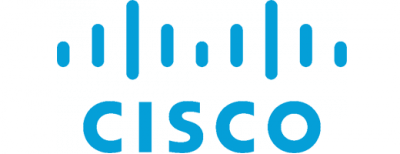
Emphasized technological partners

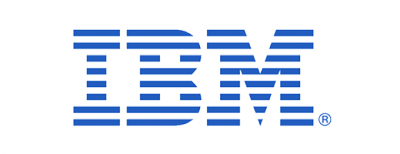
Gold level partners


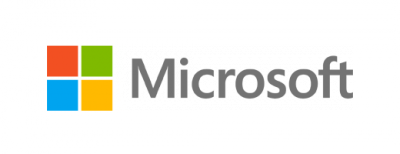


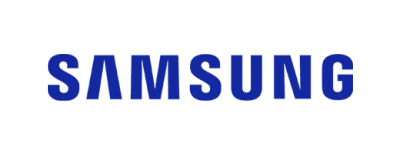
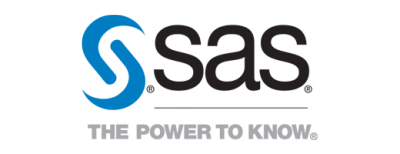

Silver level partners
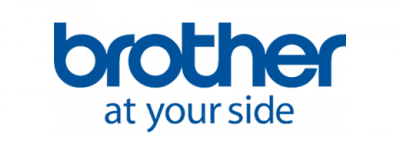
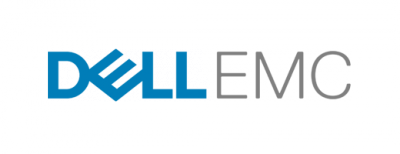
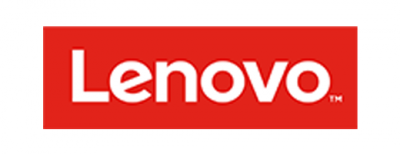
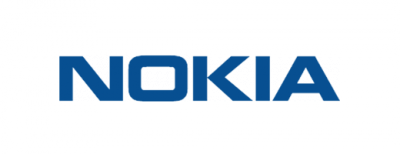
Collaborator partners
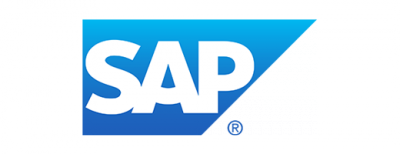
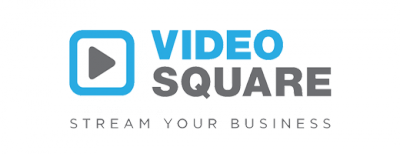
Media partners
